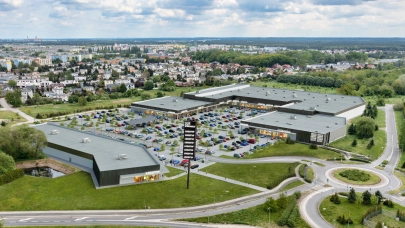
According to a survey conducted by Savills involving real estate investors with total Europe and Middle East assets under management (AuM) exceeding €500 billion, almost a third of investors are looking to adopt a more aggressive, value-added investment strategy over the next 12 months. This is up from 14% on last year’s survey, with only 28% expecting to deploy a more defensive strategy over the next 12 months, down from 55% last year.
In terms of sectors, the highest priority are urban logistics, big box logistics, multifamily, student housing and senior living.
Tristam Larder, Savills Head of European Capital Markets, says: “We expect that many investors will continue to target lot sizes below €100 million over the next 12 months, as debt costs continue to restrict larger deals for those depending on funding.
“What’s interesting to me is that European investors are twice as likely to invest in CBD offices than US/Canadian investors which is no doubt linked to the fact that office vacancy rates are much lower in Europe than in North America and the fight for and flight to quality continues to persist given restricted development pipelines.”
Marcus de Minckwitz, Savills Head of EMEA Industrial and Logistics, says: “Despite ongoing macro-economic headwinds, the logistics sector has remained resilient, and it is positive to see that urban logistics and big box logistics in Europe are top of the list for many investors. The challenge, as always, remains finding the right product in the right place at the right price but we continue to see buyer and seller expectations come closer together and anticipate logistics investment volumes to pick up over the next 12 months.”
Mike Barnes, Savills Associate Director for European Research, adds: “All of the investors we interviewed now have an ESG strategy in place and, compared to last year, we are seeing more investors only willing to acquire ESG-compliant assets and an increase in those willing to undertake a ‘manage to ESG’ strategy. This also explains why, after debt costs and pricing not having adjusted sufficiently yet, the current shortage of suitable products to acquire is one of the biggest barriers for investors in the European commercial real estate market.”
Mark Richardson, Savills Head of Investment in Poland, says: “Recent evidence and transactions completed in the industrial and logistics sector in Poland are indications of the fact that some investors continue to pursue a strategy of acquiring prime assets in the sector. Despite signs of negative market sentiment towards real estate, the level of investor interest remains resilient in the Polish industrial and logistics sector, particularly for transactions with investment volumes of less than €100 million.”
According to preliminary estimates by Savills, the volume of investment transactions on the real estate market in Poland in the period from January to September 2023 was approximately 65% lower than last year. The analyzed data also showed a decrease in the average lot size by approximately 40%. Savills expects investment sentiment to remain relatively unchanged over the next three quarters, with a slight trend towards recovery in the second half of 2024.



